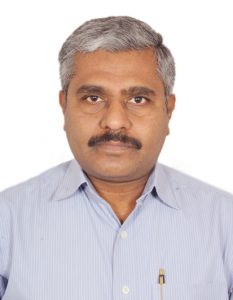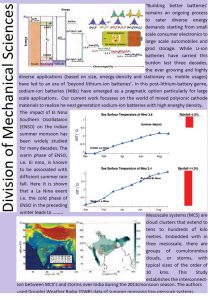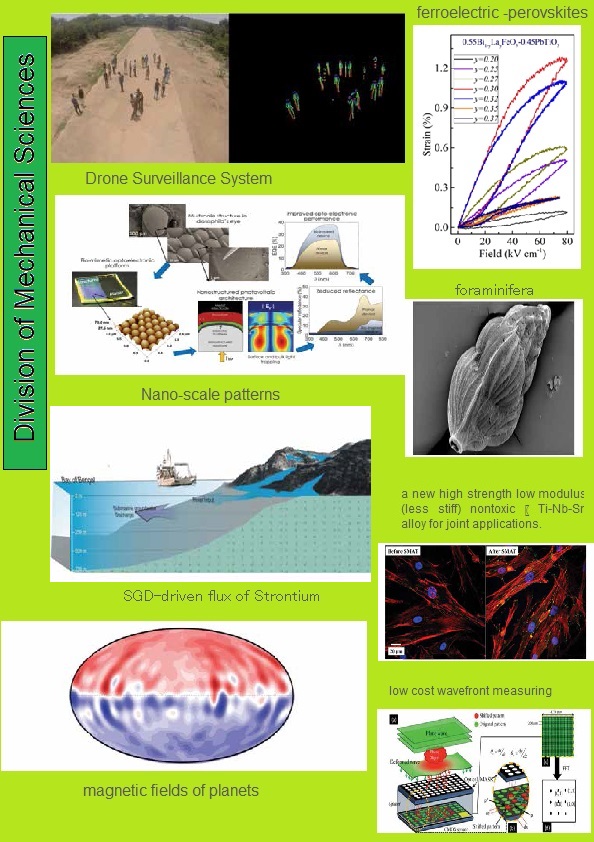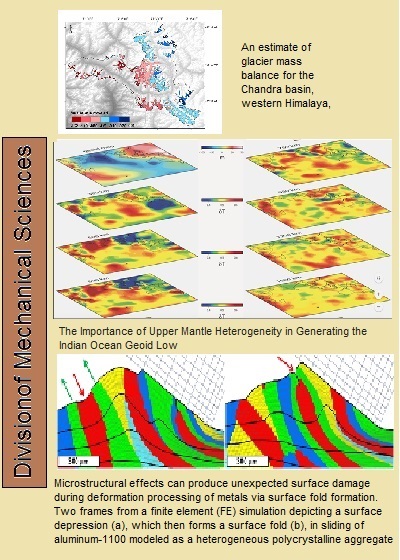
Dean: Prof. Satyam Suwas
Faculty Members -135
PhD Students – 692
M. Des Students – 50
M.Tech (Res) Students – 44
M.Tech Students – 435
PhD Conferments – 107
M.Tech Conferments – 146
M.Tech (Res) Conferments – 21
M.Des Conferments -14
Note: Faculty data as on 31 Jan 2025, Students data as on 31 Jan 2025, Degree Conferments: 2023-24
Core Research Areas
Geotechnical Engineering, Civil & Aerospace Structures, Transportation, Water Resources, Environmental Engineering and Sustainable Habitat, Climate, Structural and Functional Materials, Manufacturing, Design Theory and Methodology, Geochemistry, Tectonics, Planetary Evolution, Remote Sensing and GIS Applications, Aerodynamics, Combustion, Navigation and Guidance, Solid Mechanics, Fluid Mechanics, Thermal Sciences, Acoustics, Robotics, Dynamics, Biomolecular Engineering, Catalysis, Colloids and Interfacial Science, Nanotechnology, Thermodynamics and Simulations across length scales
Themes
Solid waste management, Climate hydrology, Risk modeling and structural health monitoring, Seismology and earthquake-resistant design, Environmentally sustainable low-energy materials, Deformation in concrete and granular materials, Variability of monsoons, Influence of aerosols on climate, Glaciology, Fluid dynamics across disciplines (aerospace, complex fluids, ocean and atmosphere, microfluidics, biology), Energy-efficient wood burning devices, Green buildings, Defluoridation, Groundwater remediation, Waste-to-building products, Disaster housing.
Thin films and ultrafine materials, Nanoparticle synthesis and colloidal stability, Materials behavior under extreme conditions, Synthesis and mechanics of biomaterials, Functional polymers for drug delivery, photovoltaics and sensors, Ferroelectrics and battery materials, Materials modeling.
Stable isotope techniques for paleoclimatology, Understanding earthquakes along plate boundaries, Earth’s core dynamics, Origin and evolution of the solar system, Smart structures, Computational Fluid Dynamics, Hypersonics and shock waves, Rocket and gas turbine combustion, Unmanned air vehicles, Non-linear control, Fracture mechanics, Computational fluid mechanics, Turbulence, Solar thermal conversion, MEMS, mechanobiology.
Computer aided design, Computerized anthropometry and ergonomics, Human Engineering Research Laboratory, Sustainable design and Virtual Reality. Protein interactions to identify novel drug and vaccine targets for HIV, hepatitis C, and dengue, Single molecule spectroscopy within living cells, New catalysts for polymer degradation and biomass conversion, Mathematical models for bioreactors including mineral leaching, toxic metal removal and methanation of biomass.
Research Snapshots
Click on images below to open respective pdfs.





 2019
2019 2018
2018 2017
2017